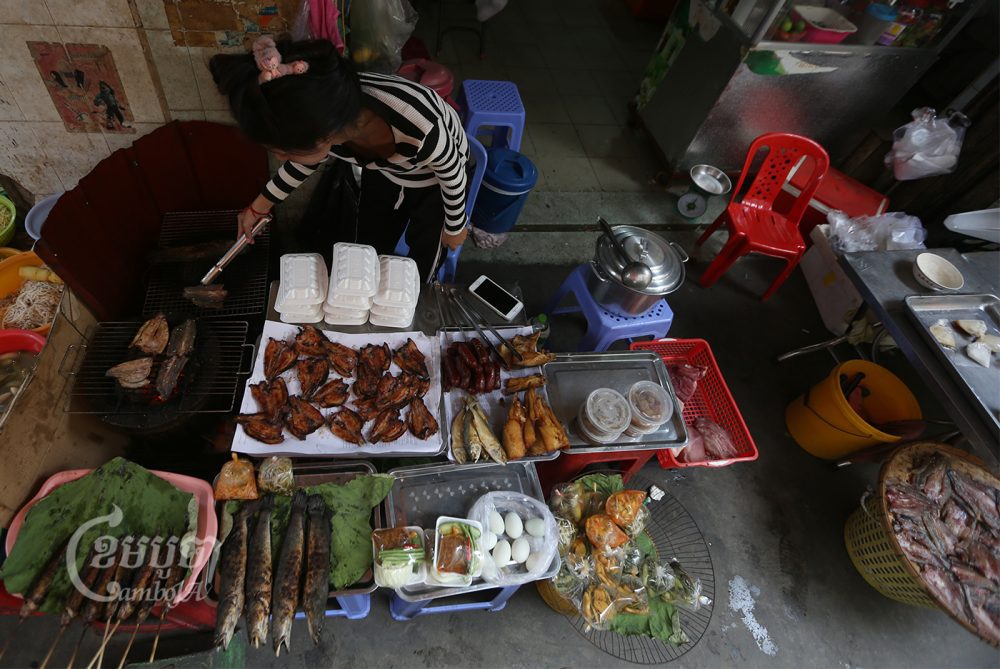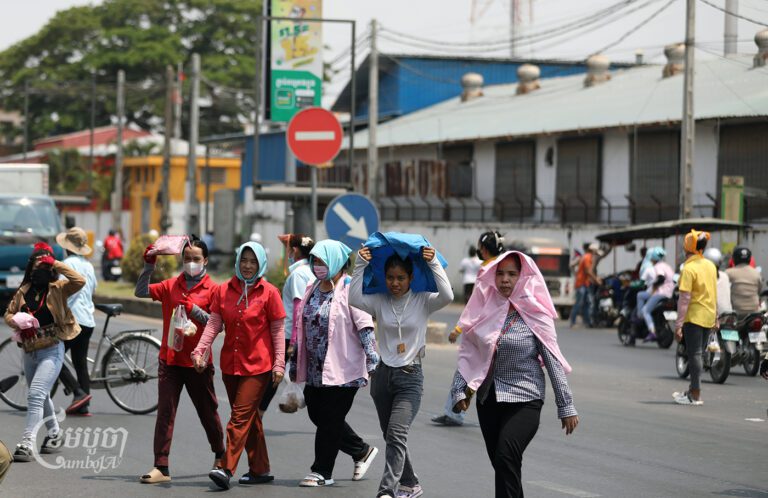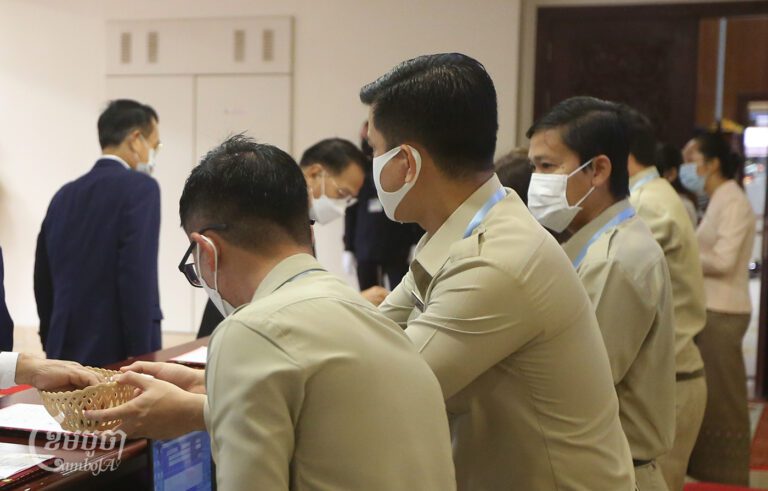A long-awaited draft law on food safety now heading to the desk of the king for signature after winning approval in the legislature could elevate Cambodian street food to compete with regional neighbors, say advocates of the bill.
The Commerce Ministry had prepared the bill in 2015, but the draft only just passed in the National Assembly on May 11, winning Senate approval a week later. In its current form, the bill lays out steep penalties for vendors and other food businesses that operate without a permit or sell unhygienic food, as well as those who sold food products without labeled expiration dates.
As written, the bill would extend to general areas of operation, including packaging, wholesale, distribution and retail.
Commerce Ministry spokesman Pen Sovicheat told CamboJA that street vendors would count as retailers. Under the text of the draft law, these informal businesses could be subject to official inspections of their operations.
“There is no exception, that I am a street vendor who is not to be inspected or does not comply with food standards,” Sovicheat said.
He said the first step of the law is to ensure safety, and the second is to promote quality to attract tourists. Sovicheat pointed to the popularity of street food in other countries, such as Singapore and Thailand, as something to strive for.
He continued to say that market and street-food sellers must adhere to the standards of hygiene: clean sales, clean production, dignified location, clean and attractive. Maintaining such standards would ensure not only food safety but repeat business for vendors, Sovicheat said.
According to the law, food vendors had the primary obligation to ensure that food is safe, quality, and suitable for human consumption, as well as to address safety issues when they arise.
Such obligations could be enforced with hefty fines for those businesses found to be in violation of the draft law’s stipulations. These penalties would run from 500,000 to 8,000,000 riels, or about $123 to $1,970, and would be imposed on businesses that operated without proper licensing or did not follow hygiene rules set by public officials.
Sovicheat said the Commerce Ministry and other offices already had many different legal standards, but not any single, comprehensive law such as the one now awaiting the king’s signature.
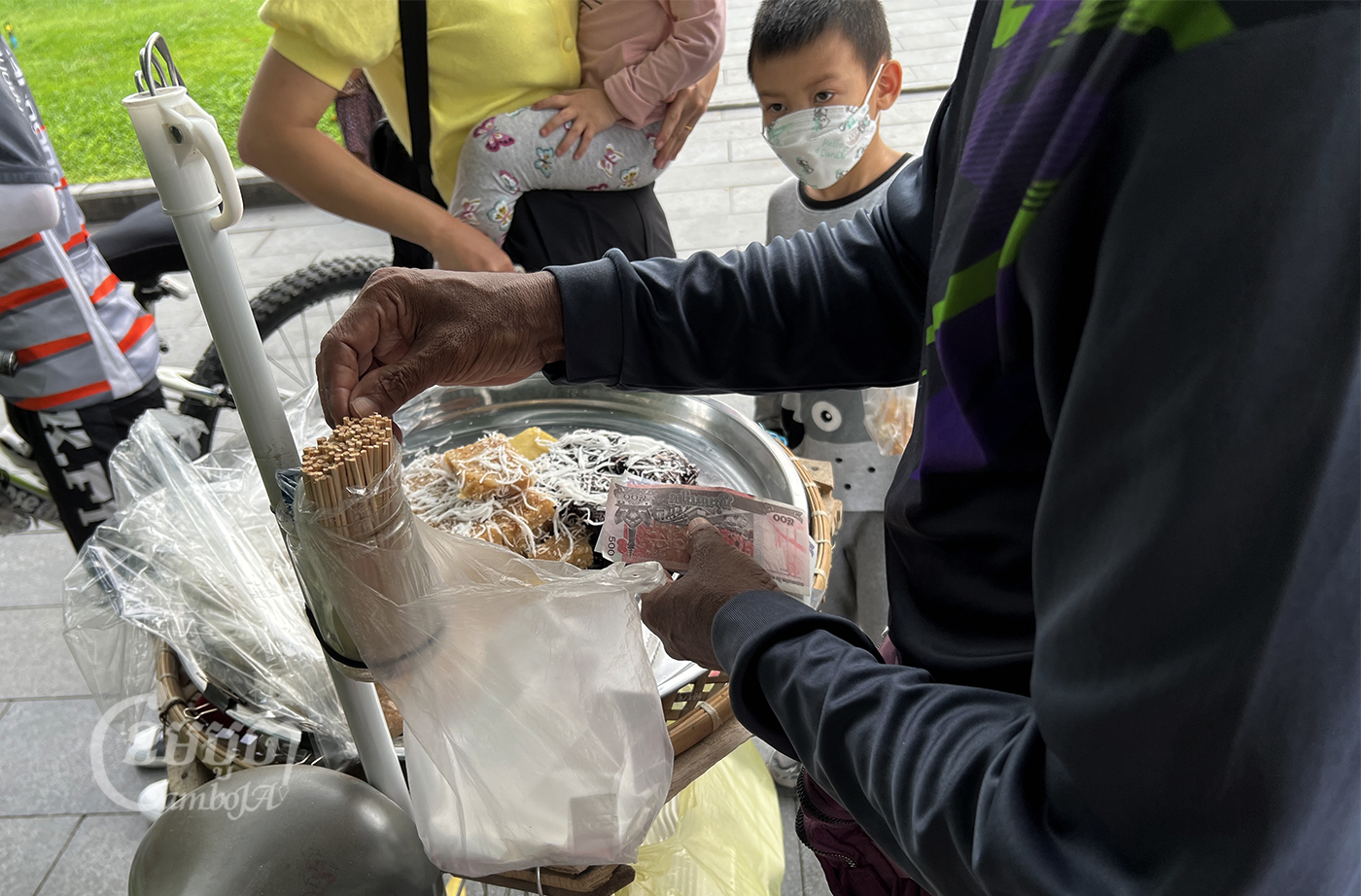
El Yari, street-food vendor busy selling with her family in the Tuol Svay Prey 1 commune of Boeung Keng Kang district, told CamboJA the draft law could be a good way to protect buyers by making sure all vendors are careful about maintaining good hygiene. However, she also had concerns about how official standards for cleanliness would be applied to informal businesses such as hers.
The 34-year-old Yari, a Cambodian Muslim, said she’s been selling street food for five years. She wondered what could happen if a food inspector found any irregularities with her stand.
“I’m worried too, but it’s just fine, and what if we do not have a place [to sell]?” Yari said.
Her stand is currently set up in front of a mosque that is still in the process of being built. When it’s finished next year, Yari says she’ll set up a more official stall to make it easier to sell properly, and to be more sanitary.
She added that she already washes and stores vegetables and fish properly, saying that she buys expensive ingredients for her customers.
Other vendors in Phnom Penh also said they welcomed the law to create hygiene standards.
Sanh Nhoem, 66, sells traditional handmade Khmer cakes from riding his bicycle, traveling between Kab Kor market to the front side of the Court of Appeal. As he finished selling cakes to some customers on the street, Nhoem told CamboJA that the law could help protect the health of everyday Cambodians.
“I have only to comply with the law,” he said, summarizing what it meant for him.
Nhoem said he would be pleased to allow inspectors to check his own setup, adding that he already has his own business incentive to sell quality products – if he sold rotten cakes to consumers, he explained, they would not buy his cakes next time.
Ros Phally, 30, is a resident of Chbar Ampov district who has sold sour-spicy fruit snacks on the riverfront near the Royal Palace for more than 10 years. She told CamboJA she applauded the passage of the draft law.
“I dare to be inspected,” Phally said. “It’s just that I do not sell [food] which is bad. The food I sell is hygienic and properly packaged.”
Morm Rithy, president of the Cambodian Tourism and Services Workers Federation, told CamboJA he saw the bill as a good thing.
“I think that it is too late,” Rithy admitted, pointing to the long wait from the bill’s preparation by the Commerce Ministry to its current stages. “But now that it has been started, I congratulate the passing of this law and I hope we will start implementing it.”
Rithy specified that the passage of the bill was late compared to similar legislation in other Asean bloc countries. In the meantime, he believes many vendors in the kingdom continue to have issues with low quality standards and poor hygiene.
He added that food imports, particularly those from Vietnam, should also be scrutinized for safety. For that, he urged leaders to implement the law clearly, saying there should be no corruption or bribery at the border.
“Thus, both domestic and import practices must be strictly enforced and not corrupted. Do not apply the law only to the poor, the lowly, or the weak, without applying it to the powerful or the rich people,” Rithy said.
He added the state should “try to do it like a drizzling rain”, with consistent, long-term implementation, as opposed to a “straw fire” that quickly burns out and leaves no trace.
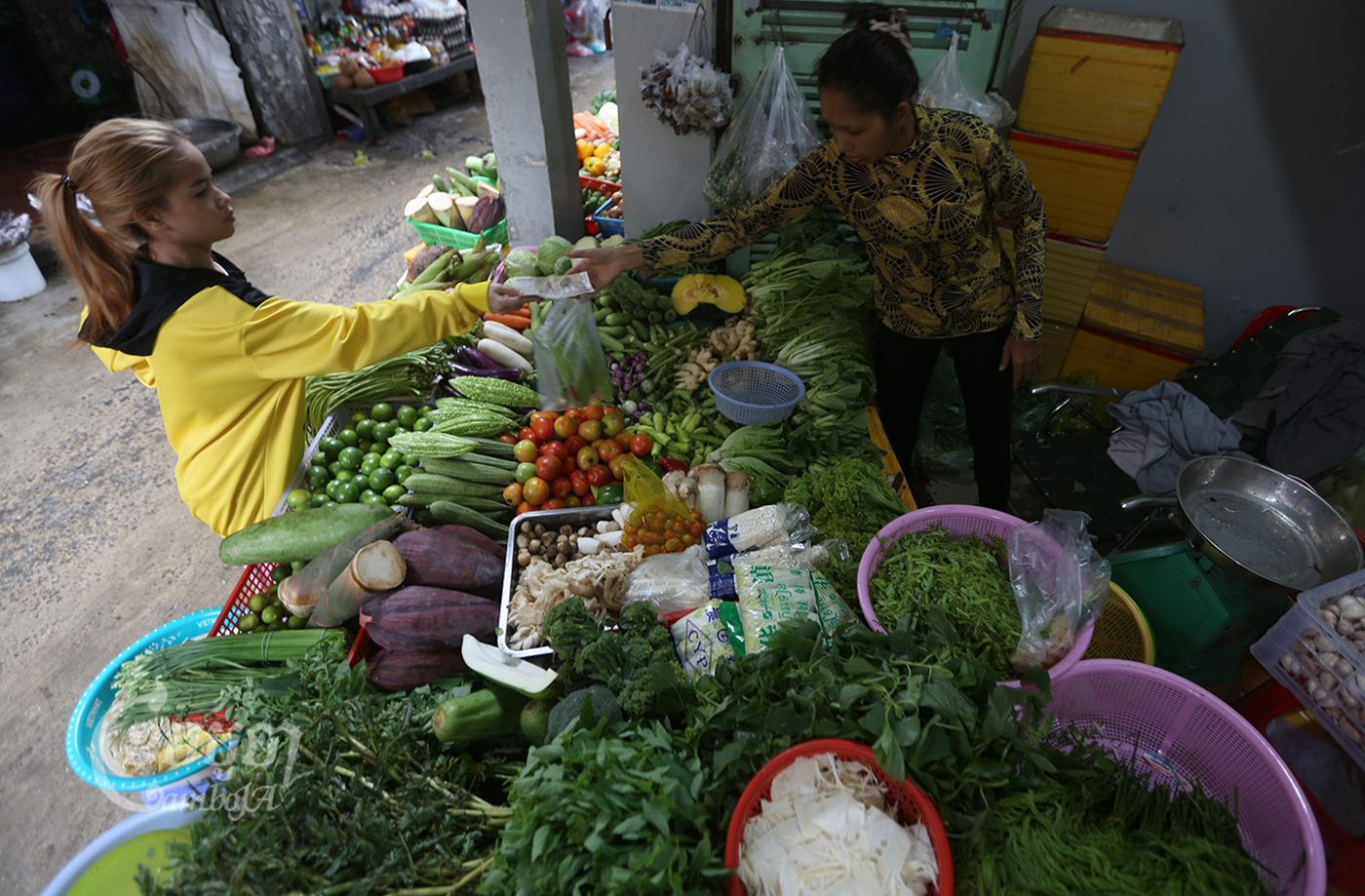
Speaking generally, Rithy said he’d seen many areas in which the implementation of laws ran into problems, providing an example in what he described as inefficient inspections of employers who violate the labor law.
The Commerce Ministry spokesman Sovicheat said even if the government cannot guarantee 100 percent efficiency in the law’s initial implementation, officials hope it will become a broader tool by which Cambodian society can judge food safety and business standards.
He said businesses, as well as the general public and law enforcement officers, can band together to ensure that the law is properly implemented.
Rithy still had low expectations for the law’s implementation to be good, saying that issues with corrupt officials and partisanship have continued as before.
“If we want to have more tourists and for our food to be recognized nationally and internationally, the law must be properly applied,” he said.


